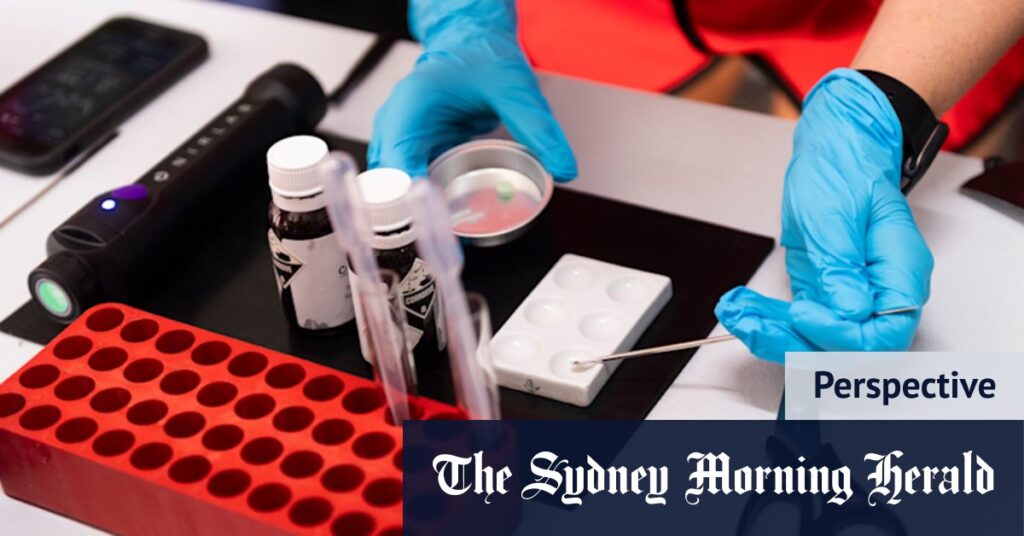At the time, Queensland Health would not confirm whether the sample related to a fatal or non-fatal overdose, but a question on notice from Greens MP Michael Berkman revealed the person had died.
Queensland Health still won’t comment on the matter, saying it is before the coroner.
The Australian Federal Police recently warned of an increase in nitazenes detected in counterfeit pain relief medications in NSW, Queensland, Victoria and the ACT, with experts saying more needs to be done to detect these substances before people use them.
Sounds like something a permanent pill-testing site and a framework to monitor the detection of dangerous drugs might be able to help with.
The UQ evaluation was completed last week but so far, the LNP has refused to commit to making it public.
A spokesperson for the Health Minister Tim Nicholls said the evaluation report would be considered in cabinet – which means Right to Information requests could be denied on the grounds of cabinet confidence.
“The government’s position is unchanged: drugs bought in the shadows at an event or through the mail should never be consumed in any circumstance,” the spokesperson said. “Testing samples sends the wrong message.”
Queensland Health Minister Tim Nicholls and Premier David Crisafulli have consistently opposed pill-testing services.Credit: Matt Dennien
On this, the LNP has been consistent, from their promise to scrap the trial in the lead-up to the state election, to the closure of the permanent pill-testing sites this year.
But just as consistent as the LNP’s rhetoric has been condemnation from experts, medical professionals, drug and alcohol specialists and advocates, who say the service reduces harm and saves lives. These same stakeholders are now calling on the LNP to release the evaluation.
“Let this evaluation see the light of day,” the Queensland chair of the Royal Australian College of General Practitioners, Dr Cathryn Hester, said this week.
“We have evidence from other jurisdictions around the world that drug testing is a sensible harm-reduction measure. If the government was confident its decision to close the drug-testing sites was based on the best available evidence, this evaluation would be made public.”
What is really shown to reduce drug-related harm isn’t a “don’t do drugs, kids” stance, it’s education and access. It’s the fact that about half the people who used the pill-testing services had never spoken to a health professional about drugs before, and that one in three were referred on for additional support. One in seven even disposed of their drugs after the consultation.
Dr Nick Yim, the Queensland president of the Australian Medical Association, said while they don’t condone illicit drug use, “we think it’s really important to see this through a health lens”.
Loading
And that health lens is seeing the emergence of dangerous synthetics and a rise in people buying unregulated and non-prescribed medication illegitimately because of cost-of-living pressures and accessibility issues.
When people don’t have access to the right information, we know they might die. Someone already did.
I suspect this is all reflected in an evaluation that’s sitting on a minister’s desk, with no plans to make it public.
Start the day with a summary of the day’s most important and interesting stories, analysis and insights. Sign up for our Morning Edition newsletter.
Read the full article here

